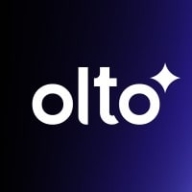

Ubuntu Linux and Olto cater to distinct markets, with the former being more comprehensive and the latter offering a niche-focused approach. Ubuntu Linux seems to have the upper hand in cost-effectiveness and support, while Olto excels in delivering value with its specialized capabilities.
Features: Ubuntu Linux is known for robust security, extensive package management, and compatibility with various hardware setups. Olto provides specialized features tailored for specific workflows and industries, appealing strongly to its niche audience.
Ease of Deployment and Customer Service: Ubuntu Linux offers a straightforward installation, supported by ample documentation and a broad community network. Olto ensures a smooth deployment experience, often backed by responsive customer service aligned with its specialized offerings.
Pricing and ROI: Ubuntu Linux is recognized for low initial setup costs and favorable ROI, especially for organizations seeking minimal investment in open-source solutions. Olto involves higher initial costs but offers features that provide significant value for specific applications, leading to a worthwhile ROI.

Olto automatically crafts personalized live demos by overlaying AI-generated, prospect-relevant data on top of your existing production apps, setting us apart from cloning-based demo solutions. Olto is trusted by some of the world's leading PreSales teams.
Ubuntu Linux is an open-source platform known for its robust security, ease of use, and rapid performance. Its lightweight design and comprehensive support system make it ideal for diverse IT environments, providing seamless management and scalability options.
Ubuntu Linux stands out with its open-source nature that allows extensive customization and access to a broad range of free software. It is widely praised for its stability and a vast package repository offering regular updates, enhancing its usefulness across different sectors. The platform is equipped with a lightweight design and excellent community support, making it scalable and easy to manage. While it could improve in areas like Windows software compatibility and user interface refinement, its benefits in enterprise management and development projects are undeniable. Improved documentation, better hardware integration, and enhanced third-party application compatibility are additional focal points to consider.
What are the key features of Ubuntu Linux?
What benefits should be considered from reviews?
Ubuntu Linux is prominently implemented in industries for tasks such as server management, application deployment, and software development. Its resource efficiency and open-source tool compatibility make it a favorite for programming, research, and cybersecurity. Companies frequently use it for web hosting, cloud services, and managing multi-user enterprise solutions.
We monitor all AWS Marketplace reviews to prevent fraudulent reviews and keep review quality high. We do not post reviews by company employees or direct competitors. We validate each review for authenticity via cross-reference with LinkedIn, and personal follow-up with the reviewer when necessary.